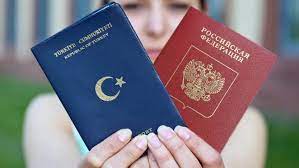Dual citizenship means that a person is a citizen of two countries at the same time. However, this has negative side effects in some cases because it takes a lengthy and expensive process to obtain and a citizen is liable to double taxation. Countries that permit dual citizenship have varying rules. In the USA, dual citizenship is attainable and citizens can share the legal rights and responsibilities of being a citizen of two countries. In the meantime, this article will provide you with information on how to obtain US dual citizenship and some of the benefits you will enjoy as a legal citizen of the USA.
Overview
People can have dual citizenship through the automatic operation of different laws rather than through their own decision. A child born in a foreign country to US national parents can, for example, be both a US citizen and a citizen of the country of birth. Alternatively, a person born with one nationality may later naturalize in another country and become a dual US citizen.
The USA law does not mention dual citizenship or require a person to choose one nationality over another. A US citizen may naturalize in another country without compromising his or her US citizenship. Persons who obtain foreign citizenship after the age of 18 by applying for it may renounce their US citizenship if they so desire. However, to relinquish US nationality through naturalization as a citizen of a foreign state, the person must apply for foreign citizenship voluntarily and with the intent to relinquish US citizenship. Also, the person’s statements and actions may reveal their intent.
Dual citizens must pledge allegiance to both the US and the foreign country. They must follow the laws of both countries, and either country has the authority to enforce its laws. However, it is critical to recognize the issues associated with dual citizenship. Claims made by other countries against USA dual citizens frequently put them in situations where their obligations to one country conflict with the laws of the other. Consequently, their dual nationality may impede the US government’s efforts to provide consular protection to them while they are abroad, particularly in the country of their second citizenship.
Is Getting Dual Citizenship Worth It?
People who have citizenship in more than one country get all the benefits and rights that each country has to offer. Dual citizens can also vote and use both countries’ social security systems.
What Qualifies as Dual Citizenship?
A child born in a foreign country to US national parents, for example, may be both a US national and a national of the country of birth. Alternatively, a person born with one nationality may later naturalize in another country and become a dual national.
How Do You Acquire Dual Nationality?
It’s possible to be a citizen of another country whether you accept the nationality or not, even if you don’t have a passport from that country. A person can obtain and enjoy the benefits of dual citizenship by being born in the USA to one or two parents with a nationality other than the United States, according to the laws of the other country. When a child is born outside the United States of America to one or both parents who are U.S. citizens under the laws of another country.
Naturalization as a U.S. citizen while maintaining dual citizenship; retaining nationality in one’s home country after naturalizing as a US citizen.
To Become a Citizen of the United States, You Must First:
- Reside in the United States legally for at least five years; if you are a U.S. citizen spouse, you must have been in the country for at least three of those years.
- Before applying for citizenship, you must renew your Permanent Resident Card if your card will expire six months after you apply, whichever comes first or your credit card has already expired.
- Before receiving your new Green Card, you can apply for naturalization. When you receive your Form I-90, Application to Replace Permanent Resident Card, you must submit a photocopy of the receipt.
- Meet certain eligibility criteria. To find out if you’re eligible for some prerequisites
- Follow the 10-step naturalization procedure
- Finally, taking the Naturalization Test in the United States and having a personal interview
Can U.S. Citizen Have Dual Citizenship?
Under U.S. law, a person does not have to choose between two citizenships.
List of Countries That Allow Dual Citizenship With the USA
Here is a list of countries that allow dual citizenship with the USA:
- Albania
- Iceland
- Portugal
- Angola
- Iraq
- Romania
- Armenia
- Ireland
- Russia
- Australia
- Israel
- Rwanda
- Belarus
- Italy
- São Tomé and Príncipe
- Belgium
- Kenya
- Senegal
- Burundi
- Kosovo
- Serbia
- Cabo Verde
- Latvia
- Sierra Leone
- Comoros
- Lebanon
- Slovakia
- Ivory Coast
- Lithuania
- Spain
- Cyprus
- Luxembourg
- Lanka
- Denmark
- Mali
- Sudan
- Djibouti
- Malta
- Sweden
- Fiji
- Moldova
- Switzerland*
- Finland
- Morocco
- Syria
- France
- Mozambique
- The Czech Republic
- Gabon
- New Zealand’s
- Tonga
- Gambia
- Niger
- Tunisia
- Germany
- Nigeria
- Uganda
- Ghana
- Macedonia, North
- UK
- Greece
- Norway
- Vanuatu
- Hungary
- Philippines
- Zambia
Countries That Only Permit Dual Citizenship by Birth
If you become a naturalized citizen of any of the following countries, you must renounce your US citizenship:
- Taiwan
- Korea, South
- Hong Kong
- Cambodia
- Liechtenstein
- Netherlands(The Netherlands allows citizenship by marriage as well.)
- Croatia
- Bulgaria
Countries Where US Dual Citizenship Is Not Allowed
The following countries don’t allow dual citizenship with the US:
- Andorra
- Bahrain
- Bosnia and Herzegovina
- Cuba
- Montenegro
- Myanmar
- Pakistan
- Panama
- Papua New Guinea
- Qatar
- San Marino
- Estonia
- Guyana
- Japan
- Monaco
- Suriname
- Tanzania
Can You Travel With 2 Passports?
Yes. People can have more than two, too. Having more than one passport is usually a good thing (if your home country allows it). If you have a second passport, you can choose which one makes it easier for you to get into a foreign country, and the lines will likely be shorter.
Dual Citizenship Obligations in the United States
As a U.S. citizen, you must file (and, if necessary, pay) U.S. income and other taxes for the rest of your life, including any income you earn outside the United States, regardless of where you live. This means you could owe taxes to both the US and your other country of citizenship on the same income unless that country has an agreement with the US that allows dual citizens to avoid “double taxation.”
However, any previous encounters with law enforcement must be made public. Officers from the United States Citizenship and Immigration Services (USCIS) who evaluate citizenship applications closely examine applicants’ backgrounds. Certain types of violations, such as immigration fraud, drug abuse, or domestic violence, may result in deportation. If you are concerned about your past interactions with law enforcement, you should seek legal counsel before applying for naturalization.
If required by law, you must serve in the military. All males between the ages of 18 and 26 who have lived in the United States or received a green card must register with the Selective Service System unless they have an immigration status other than “green card holder.” In the event of war, a U.S. citizen must serve in the United States military (in combat or otherwise) if called upon by the government.
Furthermore, a jury filing is an obligation you must fulfill. All citizens of the United States are required to serve on juries. However, you may not have to serve. To serve on a jury panel, you must be chosen by the judge and attorneys in a legal proceeding. However, the selection procedure begins after you have been summoned to court.
Benefits of US Dual Citizenship
#1. Benefits and Privileges
People with dual citizenship can enjoy the benefits and privileges of both countries. They have access to two social service systems, can vote in both countries, and may be able to run for office in both (if the law permits). They can also work in either country without a work permit or visa, and they can attend school in either country at the same tuition rate as citizens (versus the international tuition rate).
#2. Two Passports
Having dual citizenship benefits you to travel with two passports, one for each country you call home. For example, if you are a US citizen and a New Zealand citizen, you can travel more easily between the two countries. Having a passport issued by a citizen eliminates the need for long-stay visas and any questions about the purpose of your trip during the customs process. Having two passports gives you the right to enter both the United States and New Zealand, which can be especially useful if you have family in both countries or if you are an international student or businessperson.
#3. Cultural Education
Because of your dual citizenship, you’ll be able to enjoy benefits from two different cultures. Some government officials favor dual citizenship as a means of promoting the country’s image as a top tourist destination. Dual citizenship allows people to learn about the history of both countries, learn two (or more) languages, and live in a different culture.
#4. Property Ownership
The ability to own property in both countries is one of the benefits you get from dual citizenship. Although some countries only allow citizens to own land. You would be able to buy property in either or both countries as a legal citizen of both. If you frequently travel between the two countries, this may be especially useful because property ownership may offer a more cost-effective way to live in two places.
Drawbacks of Dual Citizenship
Dual citizens are subject to different rules in different countries; although, some countries may not allow dual citizens. Before traveling, US citizens should check with the embassy of any country in which they have a foreign nationality for relevant nationality laws. The following are some examples of regulations that may affect a dual national:
#1. Entry and Exit Requirements
Your second nationality may require that you present a valid passport or identity document when entering and exiting a foreign country. Some countries impose specific requirements on departing citizens, such as the inclusion of an exit visa in their passports.
#2. Exit Bans
As an alternative to criminal detention, countries may impose exit bans on dual citizens. However, civil or familial disputes can result in an exit ban in some cases. Exit bans can be used to compel an associate or relative under investigation to return abroad to stand trial, even if they are not themselves facing criminal charges. Dual citizens who are subject to an exit ban may not be able to determine how long the restrictions or investigation will last. However, dual citizens who face an exit ban or lengthy processing of civil documents frequently face significant financial hardship. In essence, they might lose their jobs and have to pay fines and expenses they didn’t expect.
#3. Limited Assistance Abroad
It is possible that local authorities will not recognize your US citizenship if you do not use your US passport to enter a country. Although there may be limits to how much help the U.S. embassy or consulate can give.
#4. Notification and Access to Detained Dual Nationals
As a result, many countries, even those that do not explicitly prohibit dual citizenship, are unable to provide access to dual citizens in custody. If they are citizens of the country where they are detained, US consular officials may be denied access to detained US citizens. There are some countries, particularly those that don’t recognize dual nationality, that fails to notify the US embassy when an American citizen is arrested or detained. However, if a dual citizen is arrested or detained, he or she should ask police or prison officials to notify the nearest US embassy or consulate.
#5. Military Service
U.S. citizens with dual nationality may be required to serve in the military of a foreign country. This requirement may be imposed upon arrival or when attempting to leave the country.
#6. Taxation in both countries
Dual nationals may be taxed in both the United States and any other country where they have a nationality.
#7. Other Restrictions
Consequently, some countries have laws that make dual citizenship illegal, and you may be forced to give up your foreign citizenship. In some countries, you must formally renounce your nationality to maintain your right to live and work in that country.
Can You Exit a Country on One Passport and Enter on Another?
People with more than one nationality can use the passport of their other nationality to enter and leave the country of their other nationality.
Conclusion
I hope this article has provided you with all of the information you need to gain US dual citizenship and some of the benefits you will receive as a lawful citizen of the United States.
Dual Citizenship FAQs
Does dual citizenship mean two passports?
Dual citizens hold two passports (one from each country) and are entitled to the rights, privileges, and responsibilities of both countries.
Is triple citizenship possible?
Yes, you can be a citizen of three countries. The same rules apply to dual citizenship not every country allows for multiple citizenships, so check with your country of origin to see if triple citizenship is permitted.
Which country allows triple citizenship?
This is possible in two European Union countries: Malta and Cyprus, as well as the five Caribbean countries of Antigua and Barbuda, Grenada, Dominica, St. Kitts, and Nevis, and St. Lucia. However, citizenship by investment programs is also available in Vanuatu, Montenegro, Turkey, and Jordan.
Can you lose U.S. citizenship?
You may lose your US citizenship in certain circumstances, such as if you:
- Enlist in a foreign military service
- Apply for citizenship in a foreign country to enunciate US citizenship.
Can you be citizen of no country?
A stateless person is someone who is not recognized as a citizen of any state for that state’s laws. In layman’s terms, this means that a stateless person does not have any nationality. Some people are born without a state, while others become stateless.
{
“@context”: “https://schema.org”,
“@type”: “FAQPage”,
“mainEntity”: [
{
“@type”: “Question”,
“name”: “Does dual citizenship mean two passports?
“,
“acceptedAnswer”: {
“@type”: “Answer”,
“text”: “
Dual citizens hold two passports (one from each country) and are entitled to the rights, privileges, and responsibilities of both countries.
“
}
}
, {
“@type”: “Question”,
“name”: “Is triple citizenship possible?
“,
“acceptedAnswer”: {
“@type”: “Answer”,
“text”: “
Yes, you can be a citizen of three countries. The same rules apply to dual citizenship not every country allows for multiple citizenships, so check with your country of origin to see if triple citizenship is permitted.
“
}
}
, {
“@type”: “Question”,
“name”: “Which country allows triple citizenship?
“,
“acceptedAnswer”: {
“@type”: “Answer”,
“text”: “
This is possible in two European Union countries: Malta and Cyprus, as well as the five Caribbean countries of Antigua and Barbuda, Grenada, Dominica, St. Kitts, and Nevis, and St. Lucia. However, citizenship by investment programs is also available in Vanuatu, Montenegro, Turkey, and Jordan.
“
}
}
, {
“@type”: “Question”,
“name”: “Can you lose U.S. citizenship?
“,
“acceptedAnswer”: {
“@type”: “Answer”,
“text”: “
You may lose your US citizenship in certain circumstances, such as if you:
- Enlist in a foreign military service
- Apply for citizenship in a foreign country to enunciate US citizenship.
“
}
}
, {
“@type”: “Question”,
“name”: “Can you be citizen of no country?
“,
“acceptedAnswer”: {
“@type”: “Answer”,
“text”: “
A stateless person is someone who is not recognized as a citizen of any state for that state’s laws. In layman’s terms, this means that a stateless person does not have any nationality. Some people are born without a state, while others become stateless.
“
}
}
]
}
- Konga Yakata: Top deals in 2023
- Konga Black Friday: Best deals for 2023 (+ quick guide)
- Student Finance: Grants, Loans, Applications (+ How to Start Guide
- Black Friday Deals 2023: Top 20 you do not want to miss (updated))
- WOMEN OWNED BUSINESS CERTIFICATION: Requirements and; All you Need
- TYPES OF FRAUD: Different Types of Frauds You Need to Know
- Reasons to buy real estate in Istanbul






